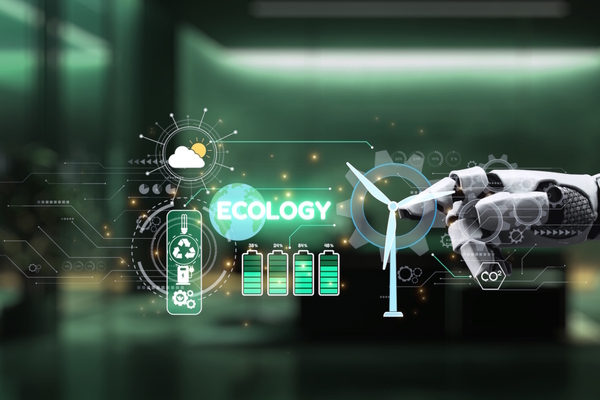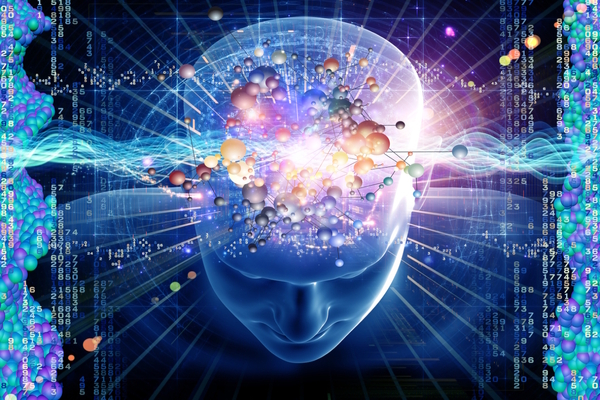From coffee chats to chatbots: the new rules of networking
Andrea Marino at Nova explains how connection is evolving in the age of AI and remote work

Today, those networking moments are disappearing. Work has become more flexible, more digital - and more distant. With the rise of AI, communication tools such as Chat GPT, are reshaping how we connect and traditional networking is quietly evolving into something entirely new.
Traditional networking is slowly fading away amongst younger professionals. Recent research from Nova shows that nearly two-thirds (60%) of professionals in the early stages of their careers now avoid in-person networking altogether, and almost a third (29%) now feel socially anxious when faced with small talk.
The digital shift: efficiency over empathy
As hybrid and remote models reshape modern work, the way professionals build networks and connect is changing too. Flexibility and digital tools have streamlined collaboration, but at a cost - those casual, trust-building moments amongst colleagues have faded. The chat before a meeting, the coffee catch-up, the spontaneous introduction have all become rare. Relationships now often start and end on screen, making real-world communication feel unfamiliar or even intimidating.
Increasingly genuine in-person communication feels like a lost art.
The impact AI is having on the evolution of traditional networking and individuals can’t be ignored. As standard networking opportunities are starting to disappear with the rise of remote working, the rise of AI is also affecting individual’s confidence with communicating in professional settings. Individuals are now becoming overly reliant on AI to communicate in professional settings.
Our recent research found that two in five professionals (40%) now use tools like ChatGPT to help them write messages or prepare for conversations, while more than a quarter (28%) feel lost without running their words past it first.
The human reboot: connection as a skill
People need to evolve as networking evolves.
As AI becomes more embedded in everyday communication, professionals need to learn to adapt in new ways to ensure they have strong professional networks. The key is to use technology as a tool for confidence, not a replacement for connection.
AI can help with preparation - drafting introductions, refining messages, even practising conversation openers - but it shouldn’t take over the act of engaging with people in real life. The real value lies in using these tools to get started, then stepping into the conversation with authenticity and curiosity.
Polish may make communication easier, but it’s authenticity that builds trust. In a world where AI can make every message sound perfect, professionals who can still sound human - with warmth, humour, and the occasional imperfection - will stand out most. Connection depends less on saying the “right” thing, and more on being real.
It’s also becoming increasingly important to stay comfortable with spontaneous communication. As more interactions move online, the moments that matter most are often the ones we can’t plan: the quick chat, the unguarded thought, the unexpected introduction.
Building confidence isn’t about grand gestures - it’s about practice. Accept the invitation. Ask the question. Turn small talk into real talk. And most importantly, give time to relationships before you need them.
Those who thrive in this new landscape will be the ones who combine digital fluency with emotional intelligence. AI may be able to process information instantly, but it can’t replicate empathy or intuition - the human qualities that turn conversations into relationships. Learning how to blend these two strengths will be essential for future professional growth.
The new network: tech-enhanced, human-driven
The future of networking won’t be about rejecting technology; it will be about rebalancing it. AI and digital tools can help us connect faster, but it’s still the human element - empathy, humour, imperfection - that turns a contact into a collaborator.
Networking isn’t dying, it’s evolving. The most successful professionals nowadays will be those who learn to use AI and digital tools to amplify their authenticity, not replace it.
Andrea Marino is Co-Founder and CEO at Nova, the professional network that connects the most talented people in the world. Its initiative, the Nova 111 List, celebrates emerging talent across business, culture and creativity
Main image courtesy of iStockPhoto.com and alvarez

Business Reporter Team
Most Viewed
Winston House, 3rd Floor, Units 306-309, 2-4 Dollis Park, London, N3 1HF
23-29 Hendon Lane, London, N3 1RT
020 8349 4363
© 2025, Lyonsdown Limited. Business Reporter® is a registered trademark of Lyonsdown Ltd. VAT registration number: 830519543





